Abstract
Pretreatment of mice with Freund's complete adjuvant (FCA) or Corynebacterium parvum depresses the contact sensitivity which otherwise follows immunization with picryl chloride in FCA (PCL/FCA). In contrast, Bordetella pertussis is inactive. The hypothesis that this depression was partly due to the failure of lymph nodes immunized with PCL/FCA to collect lymphoid cells was tested. Mice were pretreated with FCA, C. parvum or B. pertussis, subsequently immunized with PCL/FCA, and injected with 51Cr-labelled normal lymph node cells.
Pretreatment with FCA 10 days before immunization depressed the arrival of labelled cells at draining nodes immunized with PCL/FCA by 10–19%.
Pretreatment intravenously with C. parvum 4 days before immunization virtually abolished the increased arrival at draining lymph nodes which is otherwise seen 2 and 4 days after immunization, but had little effect on the increased arrival seen 1 day after immunization. In contrast, B. pertussis caused a slight but significant depression at day 1, but had no effect 2 and 4 days after immunization.
The depression of contact sensitivity by these three bacterial adjuvants was paralleled by their depression of the arrival of labelled lymph node cells at recently immunized nodes, and supported the hypothesis that failure of recently immunized lymph nodes to collect lymphoid cells is part of the mechanism of depression of delayed hypersensitivity by bacterial adjuvants, and in particular, by C. parvum.
Full text
PDF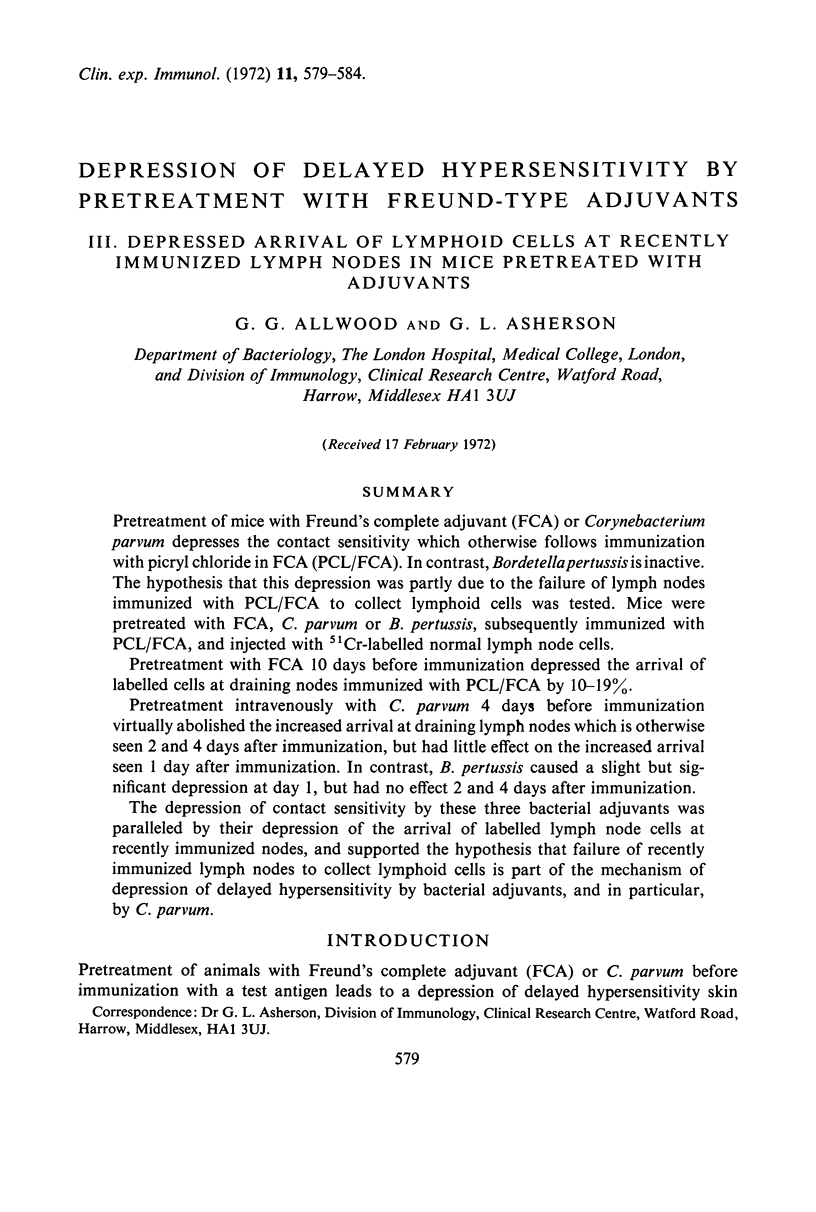
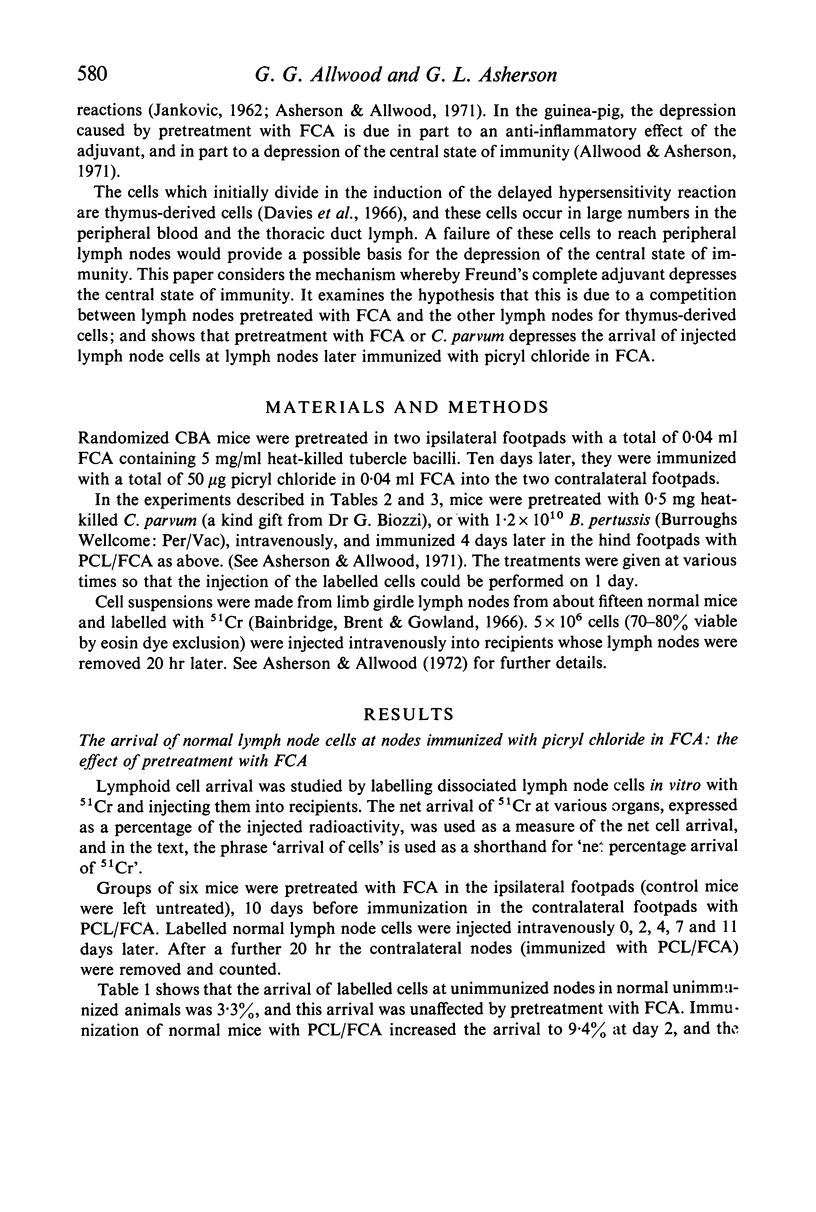
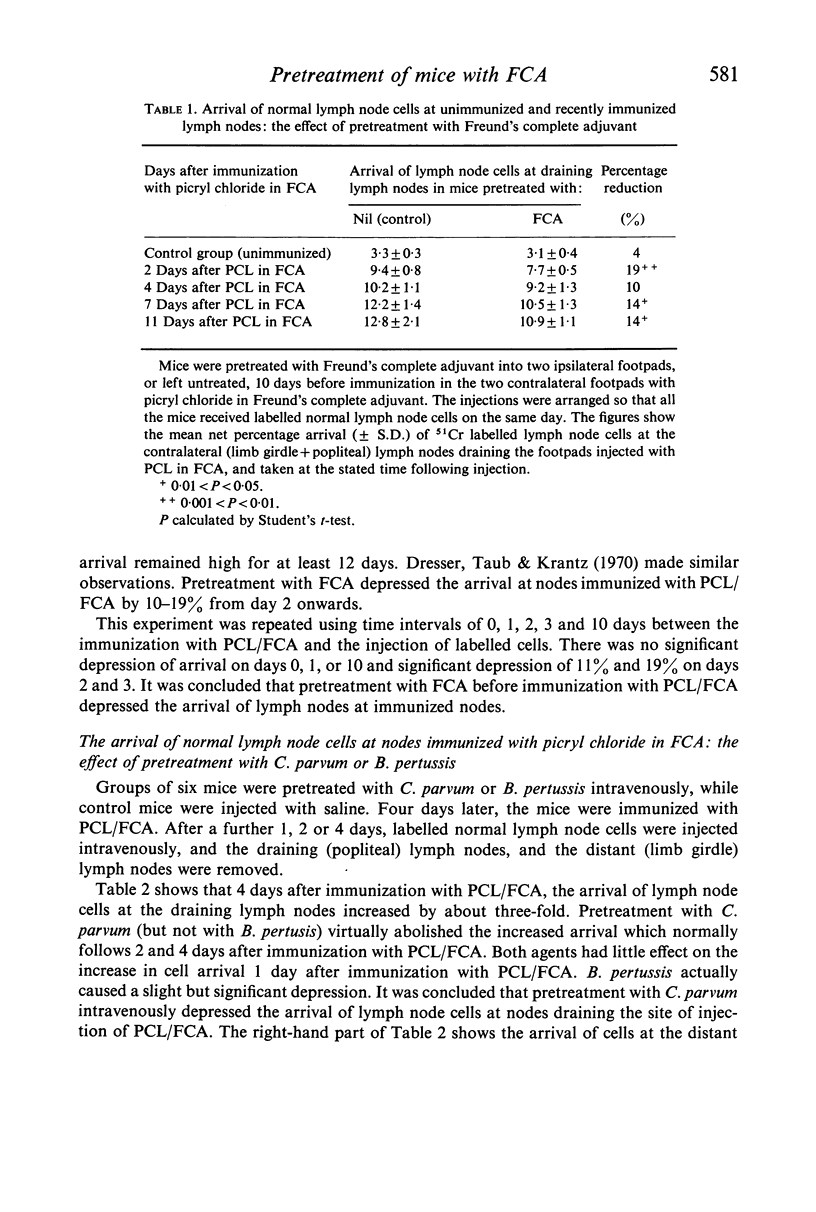
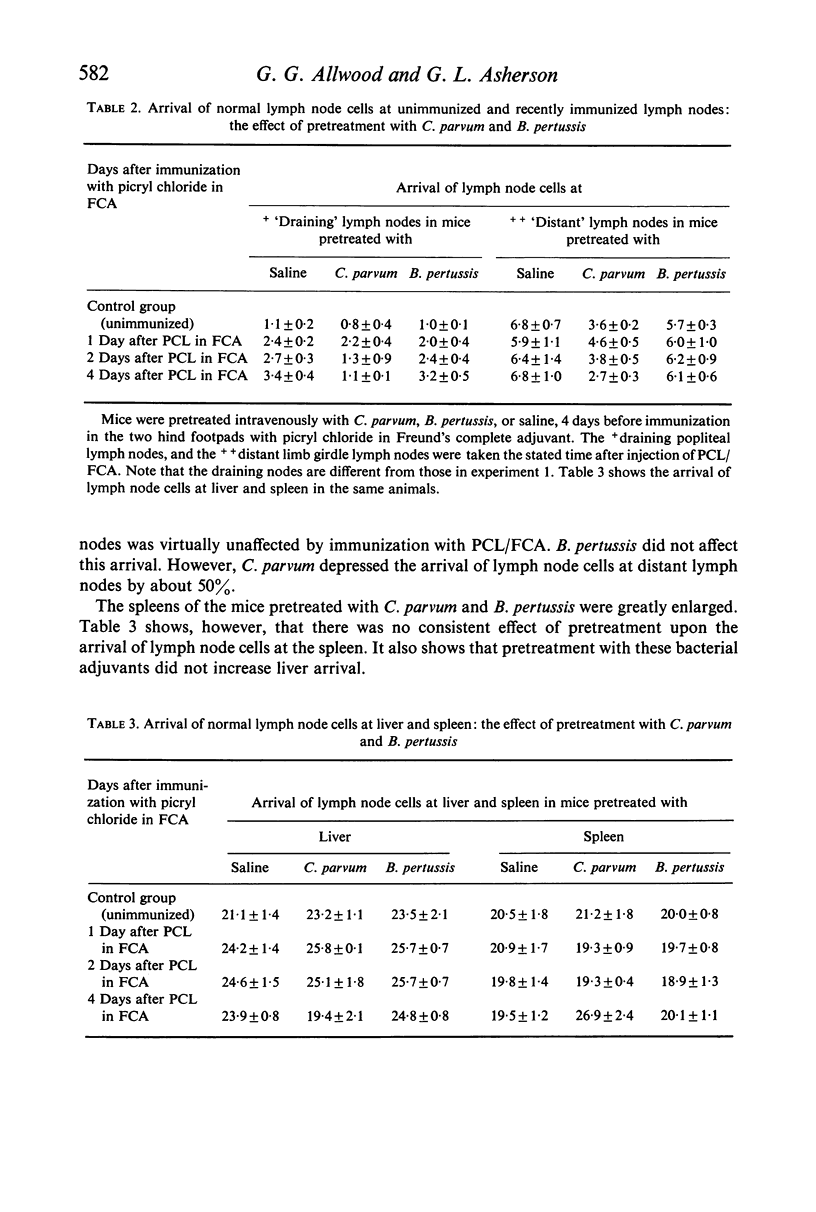
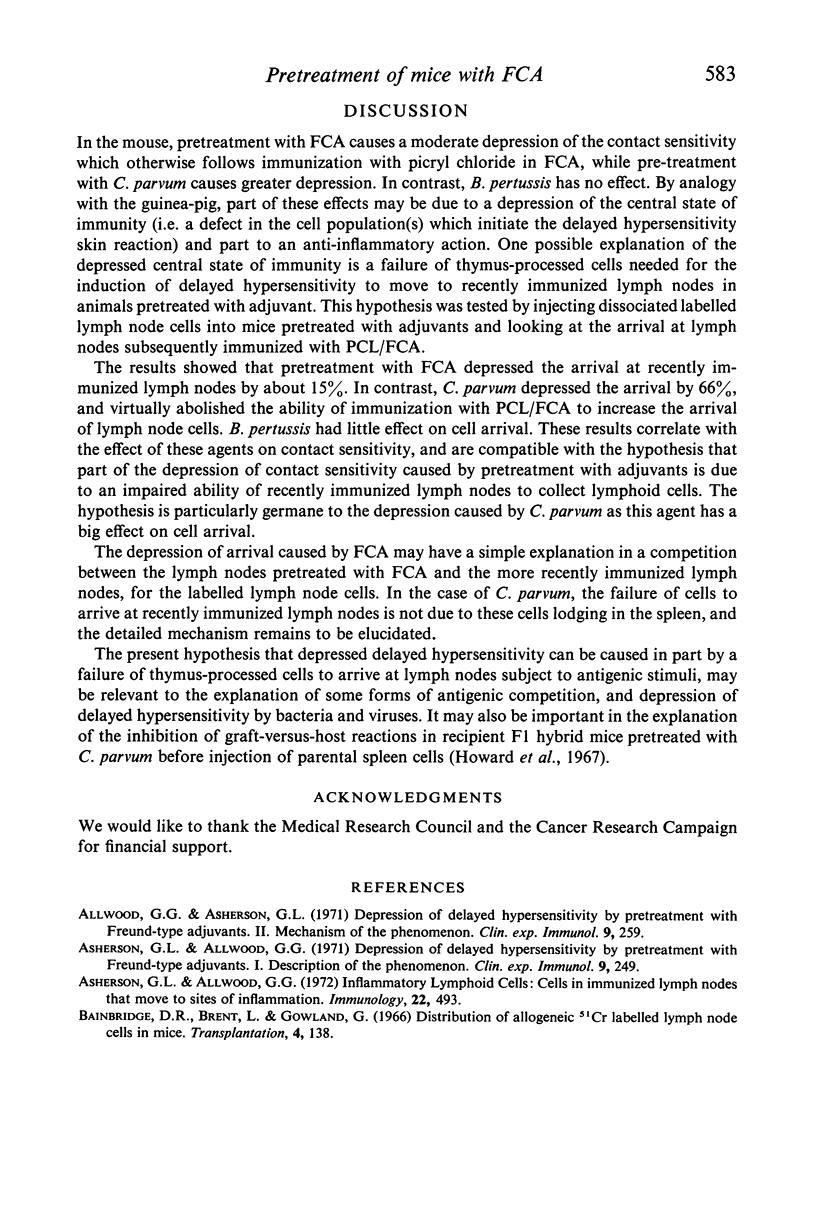
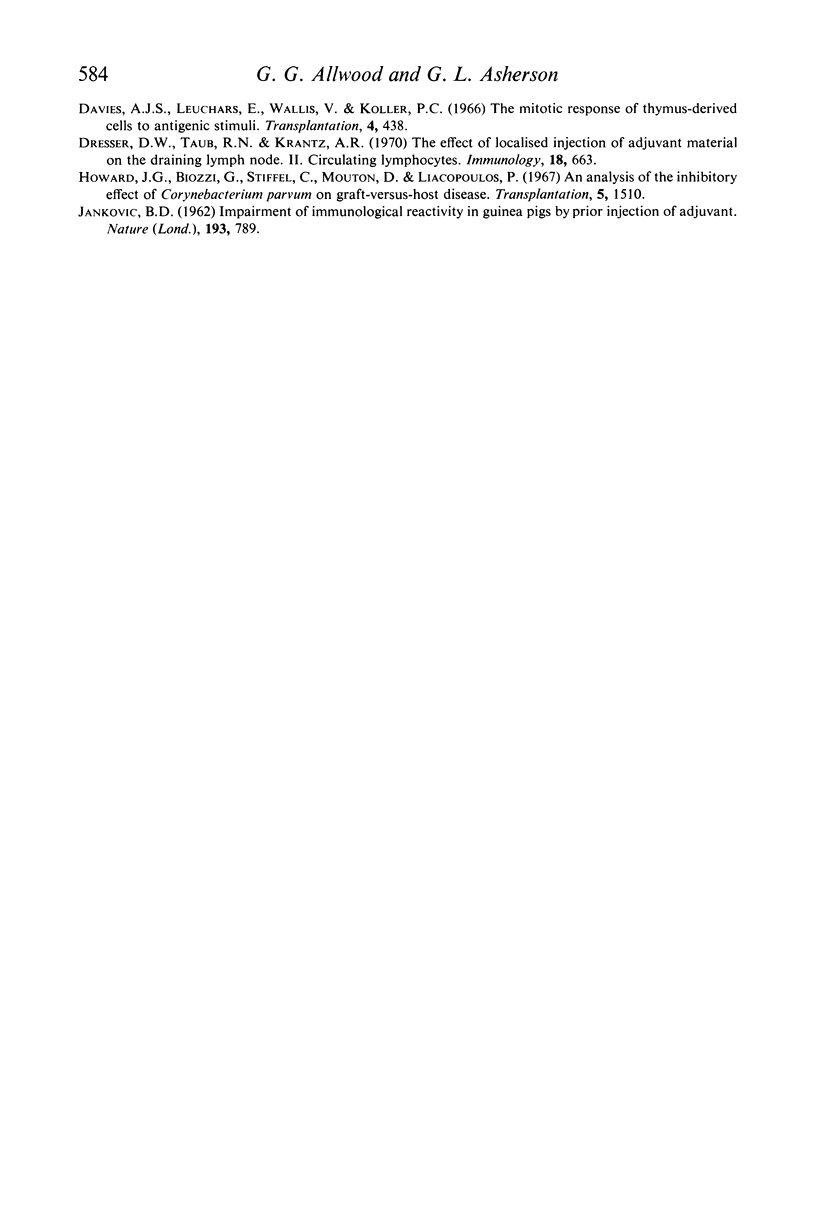
Selected References
These references are in PubMed. This may not be the complete list of references from this article.
- Allwood G. G., Asherson G. L. Depression of delayed hypersensitivity by pretreatment with Freund-type adjuvants. II. Mechanism of the phenomenon. Clin Exp Immunol. 1971 Aug;9(2):259–266. [PMC free article] [PubMed] [Google Scholar]
- Asherson G. L., Allwood G. G. Depression of delayed hypersensitivity by pretreatment with Freund-type adjuvants. I. Description of the phenomenon. Clin Exp Immunol. 1971 Aug;9(2):249–258. [PMC free article] [PubMed] [Google Scholar]
- Asherson G. L., Allwood G. G. Inflammatory lymphoid cells. Cells in immunized lymph nodes that move to sites of inflammation. Immunology. 1972 Mar;22(3):493–502. [PMC free article] [PubMed] [Google Scholar]
- Bainbridge D. R., Brent L., Gowland G. Distribution of allogeneic 51Cr-labelled lymph node cells in mice. Transplantation. 1966 Mar;4(2):138–153. doi: 10.1097/00007890-196603000-00003. [DOI] [PubMed] [Google Scholar]
- Davies A. J., Leuchars E., Wallis V., Koller P. C. The mitotic response of thymus-derived cells to antigenic stimulus. Transplantation. 1966 Jul;4(4):438–451. doi: 10.1097/00007890-196607000-00008. [DOI] [PubMed] [Google Scholar]
- Dresser D. W., Taub R. N., Krantz A. R. The effect of localized injection of adjuvant material on the draining lymph node. II. Circulating lymphocytes. Immunology. 1970 May;18(5):663–670. [PMC free article] [PubMed] [Google Scholar]
- JANKOVIC B. D. Impairment of immunological reactivity in guinea pigs by prior injection of adjuvant. Nature. 1962 Feb 24;193:789–790. doi: 10.1038/193789a0. [DOI] [PubMed] [Google Scholar]


